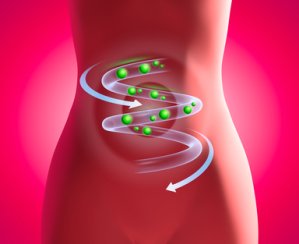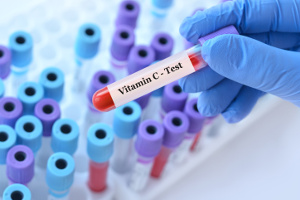Unsubstantiated rumor causes confusion about acknowledged nutrient: There is only one kind of Q10 with a documented effect
Altho ugh there are two forms of coenzyme Q10 in the body - ubiquinone and ubiquinol - only one of them is able to document an effect. This was recently ascertained by one of the leading Q10 researchers in the world.
ugh there are two forms of coenzyme Q10 in the body - ubiquinone and ubiquinol - only one of them is able to document an effect. This was recently ascertained by one of the leading Q10 researchers in the world.
The compound coenzyme Q10 can lower your risk of heart-related mortality and it is also able to increase cardiac strength in chronically failing heart muscles. This was proven recently in two large studies, both of which are published in some of the world's leading science journals. In fact, Q10 is a very well-documented substance. What many people are unaware of, however, is that there are two kinds of Q10 in the body and in nature. One is called ubiquinone, the other is named ubiquinol. The two large heart studies mentioned above were both carried out with ubiquinone. This, by the way, is the case with the majority of Q10 studies that have been made in the past. Ubiquinol, on the other hand, can barely document its effect.
More expensive and less stable
Recently, it has been suggested that ubiquinol is a better form of Q10 because, as some claim, it has better absorption. Nonetheless, there are no studies that can document this assumption. On the contrary. It appears that there are no benefits of using ubiquinol, which is more expensive to manufacture and is even far less stable than ubiquinone.
Leading ubiquinone scientist
Ubiquinone is superior to ubiquinol, and this was explained in detail at the 8th International Q10 Symposium in Bologna, Italy, by one of the world's leading Q10 scientists, the renowned American physician, Willliam Judy. Dr. Judy has conducted intensive research in ubiquinone for half a century and is also known as "The Godfather of Q10" and "The Grand Old Man of Q10 Science". He took the podium to clarify the distinct differences between the two types of Q10, and the audience anxiously waited to hear his explanation, part of which is rooted in research of his own.
Ubiquinol gets converted
In order to investigate how ubiquinone and ubiquinol act in test participants, Doctor Judy set up a study where he gave volunteers different doses (100 and 300 mg) of both types of Q10. Among other things, his study showed that:
- Ubiquinol is easily converted to ubiquinone. This happens as soon as it gets exposed to oxygen (from the air) or comes into contact with gastric acid and/or intestinal fluids
- Ubiquinol is therefore absorbed as ubiquinone in the stomach and in the small intestine
- It makes no difference if you take ubiquinol or ubiquinone, as the bio-availability seen with both types of Q10 is almost the same
- There are no immediate benefits of using ubiquinol, as the compound is converted to ubiquinone in the digestive system anyway. In addition, ubiquinol is more expensive and less stable and is therefore not feasible.
Bottom line: It is ubiquinone that has the documentation
What is even more important than the discussion about absorption is to look at which of the two forms of Q10 can document its effect in the body. There are a few animal studies of ubiquinol, just like there is a very limited number of human ubiquinol studies. On the other hand, practically all Q10 research that has been conducted until date is carried out with ubiquinone.
The two studies that are really worth making a note of in this context are KiSel-10 and Q-Symbio. Both studies were conducted with the same ubiquinone preparation (a Danish brand) that contains ubiquinone in a unique formula which ensures optimal bio-availability.
Ubiquinol will have to take the test
The only way to determine if ubiquinol has a place in future Q10 research is to conduct thorough studies that can show if ubiquinol is absorbed better than ubiquinone. In this case, the next step is research that aims a finding a physiological effect of ubiquinol. So far, such an effect has not been established so ubiquinone is bound to be the form of Q10 that will be used for future research internationally.
Search for more information...
- Created on .








 Most people are unaware of vitamin C’s key role in mental health and mood. According to a large population study that is published in Frontiers in Nutrition, having higher levels of
Most people are unaware of vitamin C’s key role in mental health and mood. According to a large population study that is published in Frontiers in Nutrition, having higher levels of 



 "After about one week of taking the Q10 supplement I could feel a huge difference," says 23-year old Alan Piccini, who has been suffering from extreme fatigue and muscle aches ever since he was a child.
"After about one week of taking the Q10 supplement I could feel a huge difference," says 23-year old Alan Piccini, who has been suffering from extreme fatigue and muscle aches ever since he was a child. “Taking capsules with co-enzyme Q10 has freed me of the severe side effects of my cholesterol lowering medicine,” Mrs Franken explains.
“Taking capsules with co-enzyme Q10 has freed me of the severe side effects of my cholesterol lowering medicine,” Mrs Franken explains.